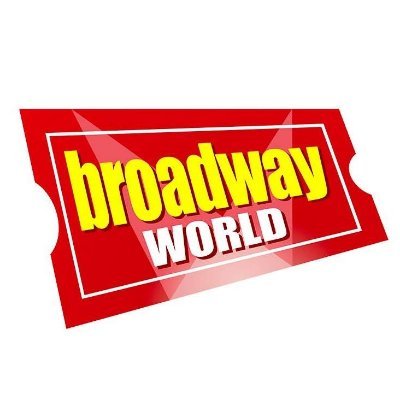
From Artist Direct
If the 21st century produced an "artist" in the truest sense of the word that would be Serj Tankian.
He continuously challenges himself and smashes any and all boundaries in the process. His brand new solo albums ORCA and Jazz-iz Christ may be musically miles apart from the whacky and wondrous metal of System of a Down, but they're equally potent and a genuinely natural progression for Tankian. His cinematic sensibility bleeds through the sprawling orchestral ORCA, while Jazz-iz Christ speaks to his sonic adventurousness over a jazz backdrop. Both records are nuanced to the point of rewarding, making every listen a trip somewhere new. Tankian's no stranger to new places though and he continues finding them—especially now with his "music-embedded painting," as he likes to call it.
Talking to Tankian is always eye-opening and inspiring so ARTISTdirect.com editor in chief Rick Florino spoke to him about both ORCA and Jazz-iz Christ in detail. He also talks what System of a Down means to him in 2013, art, and so much more.
What have you been focusing on lately?
For the last few months, I've focused on doing this music-embedded painting. I had never painted in my whole life, but I came up with this whole idea. Music has become so temporal and almost devalued due to the piracy. I have all of these painter friends who create these incredible paintings. I was thinking, "How do I make my music an exclusive experience?" I said, "Well, why don't I create a musical painting?" In other words, I'll have the speakers in there and an mp3 player and create a piece of music. Then, I'll paint a painting based on that piece of music, even with some of the notes and clefs. I'm using ideas of timelessness. I've come up with 19 pieces. Seventeen are paintings, and two are installations. One is a lamp I made from this old Yamaha Keyboard. It's crazy, cool stuff. They all have speakers and mp3 players embedded. We're looking at doing a few exhibitions this year and starting to put that out. It's a very unique experience. In some cases, the music will be reproduced. In a lot of cases, the music will be exclusive. It'll only reside within the painting at someone's house or office. It's quite a concept that we're running with it. It's fun.
ORCA and Jazz-iz Christ are definitely their own respective animals.
I've been working on ORCA for many years. I started working on it when I was making Imperfect Harmonies. In fact, I wrote the first two acts while working on Imperfect Harmonies by accident. We developed it into a symphony, and we recorded it live in Austria with an amazing orchestra there. We had the demos before that. We spent a lot of time perfecting that and changing modulations and re-demoing. It's a big work. We did a successful Kickstarter campaign last year to help with that live event. We're going to be doing a bunch of shows in Europe starting in Kiev as well as some Russian and Italian dates. Then, we'll do Poland, Helsinki, and some more. We're going all over the place in September and October after the System of a Down European tour in August.
How did you begin constructing the symphony?
I started writing it on piano. The second instrument I usually use is a cello. I do it as an ensemble so it sounds bigger than one solo cello. After the cello, I do orchestral bass. Then, I'll do the viola and violin one and violin two. I go onto the brass, all using sampled strings to basically demo out what I want to hear from a live orchestra. Once I'm done with the brass, I'll do the percussion and add harp or whatever else I need. I'll re-do the demo with changes with modulation and tempo, perfecting certain things and adding turnaround phrases. Then, we basically score that. We take the demo and writ everything down as notes for the orchestra to play. We go through revisions and review it with a conductor we want to work with. We rehearse it live with the orchestra. We'll make a few revisions here and there because the live situation is always different. Finally, you play it live and record it. It's quite a lengthy process, which is why it took me many years to put together. Obviously, I have a lot of other things going on. I put out two other solo records in the interim and toured with System.
Does ORCA feel especially personal given all of that time?
Absolutely! The really interesting part for me is there are moments in ORCA—or generally in classical music with using an orchestra—that are so vulnerable, subtle, and beautiful that you can't do that with other types of instrumentation. If you're writing a rock song, you can make it bombastic and powerful with strong intentions and lyrics. You can move people in a different way. There's definitely a certain vulnerability to this kind of music and this symphony in particular. I'm glad you caught on to that.
ORCA is very visual….
Yeah! There's a clip of Act 1 in demo form with some oceanic visuals that a friend of ours put together. We're putting together Act 2 with the live recording with these oceanic visuals.
It moves like a narrative.
The beginning was by accident. It starts off very uniform and almost as a TV series. Act one ends, and the second begins. The third act was a bit of a departure. Musically, it starts a little more upbeat. It's more major than minor. It's more uplifting than the first two acts. Throughout the second part of the third act, it becomes very minimalist and takes you into this different world. The fourth act comes in almost like a metal orchestra. The orchestra just fucking puts everything into it and then lays back. Obviously, they're all related and connected though.
When did you get into classical music?
It's not something I always followed. In retrospect, now I'm actually listening and going, "I know that classical tune". It's like people who say they don't really listen to The Beatles, but they know every Beatles song [Laughs]. I'm not one of them because I've always listened to The Beatles. It's like that for classical music though. I'm realizing how much classical music I do know though. It's all around you whether it be through commercials, theater, or wherever. It's everywhere. I never had a fond appreciation of classical growing up though nor was I a classically trained musician. It came to me later. I had that opportunity to work with the Auckland Philharmonia Orchestra, and I thought, "This would be awesome!" It opened a whole different way of interpreting things. I started out as a songwriter and here I am writing my own music for a symphony. It feeds into other things I'm doing. I'm also composing for a video game called Morning Star by Industrial Toys. It's a sci-fi shoot'em up game for the iPad, and it's very high tech. The classical thing puts me into that world that I want to work more in.
Jazz-iz Christ is truly a trip. You invite all of these incredible musicians into this world and then just run wild.
It's really interesting. I've been writing jazz tracks for many years. When I decided to make it a record, I talked to three friends of mine who are phenomenal jazz players three different places in the world. They were all down to collaborate so I started sending them the tracks. I asked for a few of their tracks as well to put in and mix it up. Some of the songs are actually from the musical that I scored Prometheus Bound. I wanted to get those out because they were never released in any other way besides the musical. It's progressive. There are a lot of electronic and live elements. There are really interesting turnarounds and some dance elements in certain ways. I'm a fan of a lot of classic jazz artists. There are cool French acid jazz artists that were going in the nineties like St. Germain. It's a combination. There's some classic jazz, dance-y stuff, and progressive things. It's all over the place, but it's jazz instrument-wise. It's for a modern listener who appreciates jazz overtones.
Picking all of these musicians must've been like casting a film.
It was great! Just watching Tigran Hamasyan on piano and Rhodes was incredible. One of my favorite trumpet players of all-time, Tom Duprey, who I worked with in Prometheus Bound the musical, played trumpet on this record. His vibe and the way he tells his stories through the instrument is just incredible. Valeri Tolstov fucking does electric guitar solos with a flute! These guys are all crazy rocking jazz players. It's an honor. Stewart Copeland played on a track. It's all friends doing it for the fun of it. It's that kind of project.
What's the story behind "Distant Thing"?
I love that song. It's from Prometheus Bound. The lyrics are Steven Sater's, and the music is mine. Originally, it was a dark, Goth-y track with synths. When I was actually in Boston doing the music during rehearsals, I decided to change the instrumentation and make it more jazz. Right on the spot, I started re-arranging. It became a really cool, almost classic jazz track. When I decided to do it for Jazz-Iz-Christ, I took the whole jazz vibe, went further, and added more instrumentation. It ended up being jazz but it started out like Goth, synth [Laughs]. The actress who sang it during the musical had this huge voice, and she'd make us cry every night because it was so haunting and powerful. I made it a little more classic-sounding, deep voice, personal, and intimate.
Where did "Miso Soup" come from?
I wrote that on tour with The FCC years ago on acoustic guitar. We were in Colorado at a really cool venue that had a basketball court and a Jacuzzi. I kept saying, "All we're missing is Miso Soup. All we need is Miso Soup" [Laughs]. I picked up the guitar and wrote that track. It's probably the most rock-oriented jazz track. The middle-eighth of that song, I've got to say, is the trippiest shit I've ever done.
Do painting, writing, and making music all come from different parts of your psyche? Or, do they feed each other?
They all definitely feed each other. Working on different records and projects at the same time, one is in your head while you're working on another. You can't help them but cross in certain ways, even if they're different genres and things. I think all art forms feed off each other. I don't have one painter friend who doesn't paint to music. Everything influences each other. It's quite interesting how that all works.
What are some film scores you dig?
The Blade Runner score is incredible! I have that. That's a great one. Planet of the Apes was a badass too.
What does System of a Down mean to you in 2013?
First and foremost, they're my partners and friends I've created this music and career with over these years. I'm still very thankful. To me, it's what I've done. It's where I've come in. It's something I enjoy doing. We started touring again three years ago for good purpose. I think we missed being a part of that together. Of course, we have a lot of fans and people interested in getting a record sooner rather than later. Things take time though. Everyone has a life and has to have the right frame of mind to make a record at the same time. Jazz-iz Christ and Orca will be my fifth and sixth solo records in seven years. I've been touring with System, The FCC, and orchestras around the world. I haven't stopped. There hasn't been much time-off. I want to make sure I have time for myself and my family. Only the four of us can decide what System means. I know the fans agree that's what System is, and that's amazing.
You have to do it at the right moment.
I can't write a forced record. It's like romancing someone at a time you don't want to be romantic. It's not even a choice. We've enjoyed touring a lot. All of the tours have been well-received. We play really tightly—probably better than we ever have. It's been cool. A new record requires three years. It's not something I can do right now. When I can commit to a three-year album cycle, I'll be down to do it.
You have to do it when the time is right.
Exactly! You can't take orders. We're not making pizza [Laughs]. You can't do it on anyone else's timeframe.
Didn't you get into rock 'n' roll to avoid taking orders?
[Laughs] That's hilarious.
—Rick Florino
06.04.13




